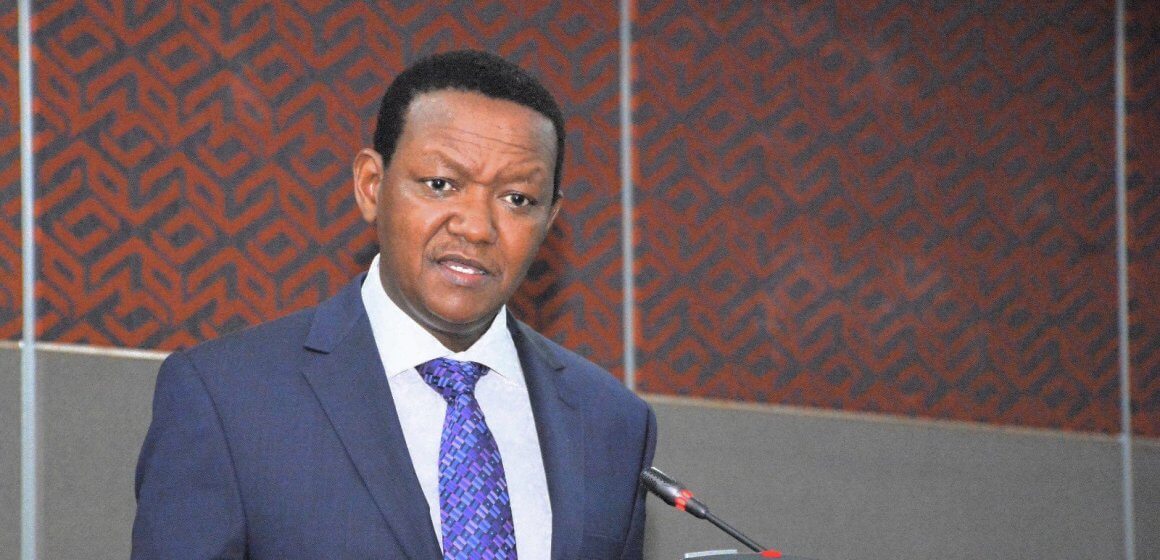|
LISTEN TO THIS THE AFRICANA VOICE ARTICLE NOW
Getting your Trinity Audio player ready...
|
The Kenyan government has come under fire from citizens following a series of job advertisements posted by Labour Cabinet Secretary, Dr. Alfred Mutua, on X (formerly Twitter). The posts, detailing opportunities for motorcycle riders in Dubai and nannies in Saudi Arabia, have sparked outrage, with many accusing the government of failing to prioritize job creation within the country.
In one post, Dr. Mutua announced 600 vacancies for motorcycle delivery riders in Dubai. While the promise of earning up to Ksh 104,000 tax-free per month seemed enticing, the catch was a steep pre-departure cost of Ksh 167,900. This sum included fees for medical tests, airfare, and visa processing.
Another post advertised 500 nanny positions in Saudi Arabia with salaries ranging between Ksh 41,000 and Ksh 52,000. Although the Saudi employer promised to cover most pre-departure expenses, critics quickly pointed to the notorious mistreatment of domestic workers in the region under the Kafala system.
Kenyans flooded the comments section of the posts, questioning why a senior government official was acting as a recruitment agent for low-paying foreign jobs rather than creating opportunities locally.

One particularly scathing comment from activist Boniface Mwangi warned, “Before you apply for these slave jobs advertised by @DrAlfredMutua, please go to YouTube and search for Saudi Arabia’s mistreatment of workers. They treat their service staff like disposable garbage. It’s modern-day slavery.”
Others, like Maria Odiyo, criticized the government’s priorities. “It’s troubling to see a Cabinet Secretary in Kenya acting as a recruiter for low-paying jobs abroad, instead of creating opportunities to retain talent locally. Kenya’s skilled workforce is vital for economic growth, yet we’re exporting it instead of fostering industries, entrepreneurship, and sustainable jobs.”
The financial implications of the Dubai rider job particularly struck a nerve. “The good CS is asking job seekers to pay Ksh 167,900 in pre-arrival costs for a motorcycle delivery job in the UAE,” remarked Mwango Capital. “Ironically, that is the same amount it costs to buy a brand-new bike.”
For many, the high cost of securing the Dubai job was seen as exploitative and out of reach for the average Kenyan. Viktart Mwangi pointed out, “As a job seeker in Kenya, you’re warned that any job ad requiring you to pay before you start working is probably a scam. But here you have the Labour CS advertising jobs to unemployed youth that’ll require them to pay almost 170k just to be considered.”
Underlying the public outcry is a deeper frustration with the government’s failure to address the country’s unemployment crisis. Despite promises of economic growth and job creation, many feel that opportunities remain scarce, forcing Kenyans to look for work abroad under often harsh and exploitative conditions.

Reuben Wambui sarcastically likened the Labour Ministry to a “boutique HR agency,” while Annabel Njoki lamented, “A whole Cabinet Secretary, serving in a Constitutionally created position, operating as a recruitment agency. I repeat, there is nothing we will not see under this regime.”
The situation has also raised questions about the government’s role in safeguarding the rights of Kenyans working abroad. Tearui noted, “Reports show African domestic workers in the Middle East face systemic abuse under the Kafala system, which ties them to their employers. Yet, our CS is here pushing to send Kenyans to the same region. This is very reckless and exploitative.”
Gatimu was even more damning in his critique, accusing the CS of being a “modern-day slave trader” and demanding accountability for the lives ruined by these overseas jobs.
Kenya’s reliance on exporting labor has sparked a national debate on the government’s priorities. While remittances from the diaspora contribute significantly to the economy—amounting to Ksh 497 billion in 2023, according to the Central Bank of Kenya—they come at a human cost.
The pursuit of employment has driven many Kenyans to seek opportunities abroad, notably in Gulf Cooperation Council (GCC) countries such as Saudi Arabia, the United Arab Emirates, and Qatar. However, these migrant workers often face severe challenges. A study by NORC, published in December 2021 revealed that over 95% of Kenyan migrants in GCC countries experienced forced labor violations.
Additionally, according to a report by Toward Freedom publication, between 2020 and 2021, at least 89 Kenyan domestic workers died in Saudi Arabia. The report, published in December 2022 also indicated that some bodies returned home missing organs.
In response to domestic unemployment, the Kenyan government has pursued labor export agreements. President William Ruto has openly and actively encouraged young Kenyans to emigrate for job opportunities, securing agreements with countries like Germany and Canada. For instance, by September 2024, Germany was set to employ 3,000 Kenyan bus drivers.
However, these initiatives have faced criticism. Critics argue that promoting emigration serves as a strategy to reduce internal dissent and question the long-term impact on Kenya’s development due to potential brain drain.











LEAVE A COMMENT
You must be logged in to post a comment.